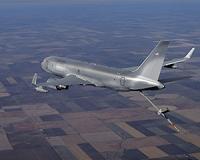| . |  |
. |
Pretoria, South Africa (UPI) Nov 23, 2010 Viktor Bout, a Russian alleged to be the world's most prolific gunrunner, is languishing in a New York prison awaiting trial on terrorism charges. And that seems to be causing some concern in Moscow. Before he was arrested in a Bangkok hotel in a U.S. Drug Enforcement Administration sting operation March 6, 2008, Bout, a former officer in Soviet intelligence, allegedly sold arms by the planeload across the Middle East, Asia, Africa and Latin America. Africa was his main stamping ground. He supposedly delivered arms that fueled a score of wars, allegedly selling to dictators and rebels alike -- and sometimes, reportedly, to both sides at the same time. He is believed to have used a fleet of aged Soviet-era cargo aircraft he bought at bargain basement prices right after the Soviet Union collapsed in 1989 and hired daredevil pilots who'd been discharged by the Soviet air force as surplus to requirements. With access to vast piles of Soviet weaponry, he is suspected to have armed the Taliban and the Northern Alliance in Afghanistan, the Revolutionary United Front in Sierra Leone, Charles Taylor's barbaric regime in Liberia, the CIA-backed Units movement in Angola, various warring factions in the Congo, and Abu Sayyef, an Islamist group in the Philippines linked to al-Qaida. In many of his alleged African operations he was purportedly paid in "blood diamonds" by people like Taylor, who is on trial for war crimes at the special tribunal in The Hague. Bout, 43, who speaks six languages, allegedly created a network of airlines that were based at various time in the United Arab Emirates, South Africa, Belgium, Britain and a dozen other countries. The Americans have wanted Bout for some time but were never able to grab him. He took refuge in Moscow, where he lived openly and freely, and apparently with the sanction of the Kremlin and Russia's intelligence community, which blocked all extradition efforts. But he was lured out of Moscow to Bangkok by DEA agents posing as arms buyers for the Revolutionary Armed Forces of Colombia, a narco-terrorist organization. It wanted an arsenal of surface-to-air missiles to shoot down U.S. surveillance aircraft. Bout spent more than 2 1/2 years in Bangkok's Klong Prem maximum-security prison fighting extradition to the United States. He lost that legal battle was flown to New York for arraignment, despite stringent Russian protests. Moscow was outraged that the Americans could grab a Russian citizen in a foreign country and whisk him off to New York to stand trial, even though he was never convicted of any crime in Thailand. On Nov. 17, Bout pleaded innocent in a Manhattan court to the four terrorism-related charges, including conspiracy to kill U.S. citizens. He faces life in prison if convicted. The Russians appear to be worried about what Bout might divulge about their clandestine operations around the globe and, in particular, their suspected covert arms sales to foes of the United States, like Iran, to negotiate a light sentence. Throughout the lengthy legal proceedings in Bangkok, Bout, as far as is known, maintained a stoic silence about his purported Kremlin connections. But Moscow sought to prevent his extradition to the United States at all costs. Bout is widely believed to have strong links to the GRU, Russia's military intelligence, which unlike the KGB wasn't dismantled after the fall of communism and continues to operate globally. In the 1980s, when Bout was operating in Soviet-backed Mozambique in East Africa, he served under KGB chief Igor Sechin, now Russia's deputy prime minister and arguably one of the most powerful figures in the Kremlin today. "Moscow fears he might reveal his connections with intelligence and organized crime networks that reach high levels in the Russian government, a concern doubtless shared by other countries he dealt with," says the U.S. global security consultancy Stratfor. "While such information is no longer actionable, it remains Bout's main bargaining chip with the prosecution." But the GRU is known to be active in shady arms deals even now. In October, U.N. officials in Sudan found four Russian Sukhoi Su-25 ground attack aircraft on an airstrip in the war-torn Darfur region. They were part of a shipment of 15 jets Amnesty International says were sold by Moscow to the Khartoum government via Belarus in violation of a 2005 U.N. arms embargo. Russia denies the accusations.
Share This Article With Planet Earth
Related Links The Military Industrial Complex at SpaceWar.com Learn about the Superpowers of the 21st Century at SpaceWar.com
 US military sidelines officials over tanker error
US military sidelines officials over tanker errorWashington (AFP) Nov 23, 2010 The chief of the US Air Force on Tuesday said two officials had been removed from a refueling tanker program after the wrong documents were sent out to aerospace rivals bidding on the huge contract. "Clearly this was a disappointment, a profound disappointment," General Norton Schwartz, Air Force chief of staff, said of the embarrassing episode. He said two individuals working on the pro ... read more |
|
| The content herein, unless otherwise known to be public domain, are Copyright 1995-2010 - SpaceDaily. AFP and UPI Wire Stories are copyright Agence France-Presse and United Press International. ESA Portal Reports are copyright European Space Agency. All NASA sourced material is public domain. Additional copyrights may apply in whole or part to other bona fide parties. Advertising does not imply endorsement,agreement or approval of any opinions, statements or information provided by SpaceDaily on any Web page published or hosted by SpaceDaily. Privacy Statement |